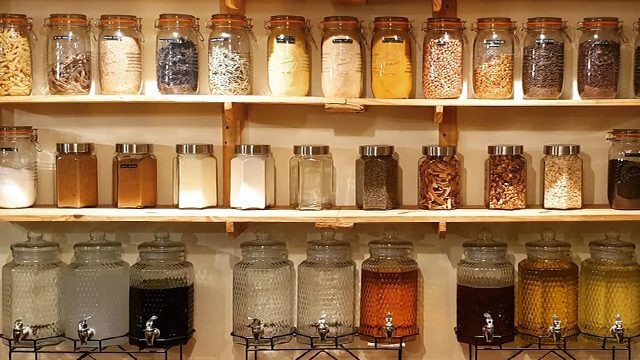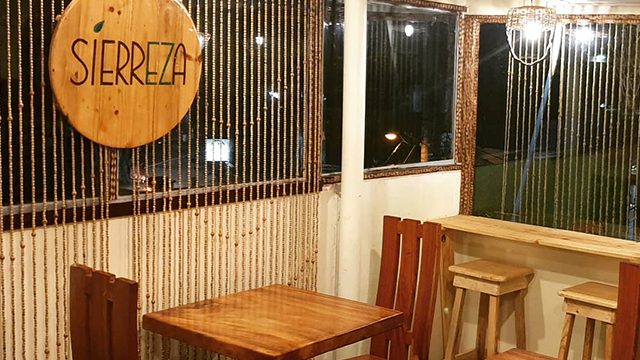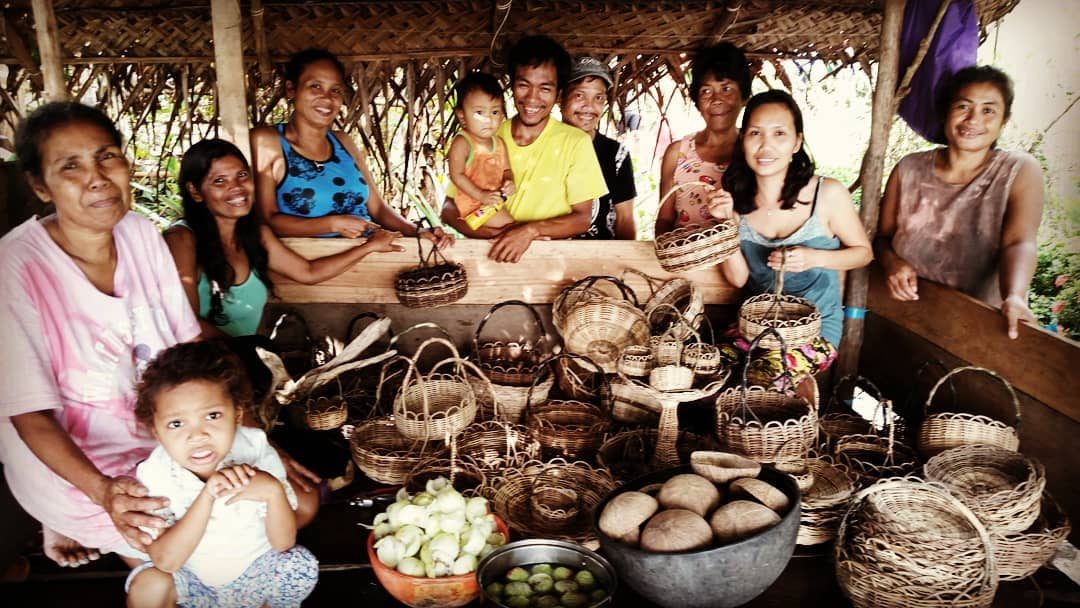SUMMARY
This is AI generated summarization, which may have errors. For context, always refer to the full article.

LAGUNA, Philippines – For the better part of a decade doing volunteer work, Che Abrigo had witnessed the plight of marginalized farmers firsthand.
She wanted to serve the farming communities better, but she didn’t believe in giving them dole-outs, as many volunteer groups would tend to do. She instead offered farmers actual livelihood. Their collaboration gave birth to Sierreza.
Sierreza is a zero-waste artisan store and café, where one can purchase organic food items, off-menu products like in-house fruits and vegetables (both fresh and processed), and indigenous handicrafts.
The café was devised as artisan primarily “to give customers a choice.” The service crew makes sure that none of the fresh items go to waste – they turn them into dried and processed goods. In line with its zero-waste campaign, the store sells baskets and bottles in place of plastic bags and containers.
Their menu is flexible, since their food items depend on the products available from the farming communities they work with. They give full prerogative to the farmers in choosing what products to plant. “If we really want to empower the farmers, they will plant whatever they want, and then we will make something out of it,” Abrigo said.

Sierreza started its operations in August 2018 in a location roughly 15 minutes away from the University of the Philippines in Los Baños, Laguna. It now has a second store at the popular Maginhawa Street in Diliman, Quezon City, which opened in July. The 8 service crew members who work alternately between the two branches travel to the provinces every week to get their products directly from partner communities.
Currently, Sierreza is partnered with communities from Sierra Madre, namely in Daraitan, Tanay, Rizal; San Ysiro, Antipolo; and Sitio Masla, Gen. Nakar, Quezon. Although the store has earned recognition for working with indigenous communities, Abrigo explained that they are not limited to this demographic, but will make sure to prioritize helping the marginalized.
Sierreza is also forging partnerships with new communities in Rizal, Bulacan, and Pampanga, and Abrigo hopes to open a new Sierreza branch.
With farmers taking the hit for the recent rice crisis, an effect of the rice tariffication law, Sierreza is making efforts to incorporate into their menu rice that are sourced from smaller, affected communities. Abrigo said Sierreza plans to develop formal partnerships with at least two rice farming communities which they can assist hands-on.
When asked about the tariffication law, Abrigo called on consumers to consider how farmers are being affected and rethink their opinion about food: “Are they (vegetables and rice) really expensive? O masyado lang tayong namulat na kailangan ang gulay, dahil galing ‘yan sa mga maralitang magsasaka, dapat mura lang yan?” (Or have we simply gotten used to the idea that vegetables, just because they are sourced from poor farmers, should be priced cheaply?”)
Community-supported agriculture

Sierreza considers “community-supported agriculture” as the heart of their operations. The store promotes mutual support between the customers buying the products and the farming communities. “We support them through demand, they support us through safe food. At the same time, they’re also protecting [their environment]. That’s also for us indirectly,” Abrigo said.
Abrigo hopes for agriculture-focused volunteer groups and social enterprises to see beyond the marketing aspect when dealing with marginalized farmers. The Sierreza team makes it a point to establish rapport with the communities they work with by actually getting to know their partners through immersion and frequenting the communities to check up on them.
“They need empowerment. They need to see themselves as important again. ‘Yung mga katutubo farmers na tinutulungan namin (The indigenous farmers whom we help), they are starting to dream for themselves. That’s how you know that you’re doing something right.”
Sierreza also teams up with agriculture experts to conduct workshops for the farmers. Abrigo hopes Sierreza can impart this immersive and collaborative approach to other groups that wish to help local farmers.
Abrigo reiterated that Sierreza does not chase after money nor popularity. It is founded on advocacy, and exists to educate the public about matters concerning marginalized farming communities. She said she does not receive any profit from the sales. Aside from the necessary operational costs, the rest of the profit goes back to the communities, providing farmers substantial income.
“We want to make the farmers heard,” she said. “Kailangang maibalik ‘yung consciousness nating consumers [sa] saan nanggagaling at sinong naghihirap para ma-produce ‘yung pagkain na nasa harap natin (It is necessary to revive our consciousness as consumers about where our food is from and who have worked hard to produce the meals we eat).” – Rappler.com
All photos from Sierreza’s Facebook page
Add a comment
How does this make you feel?
There are no comments yet. Add your comment to start the conversation.